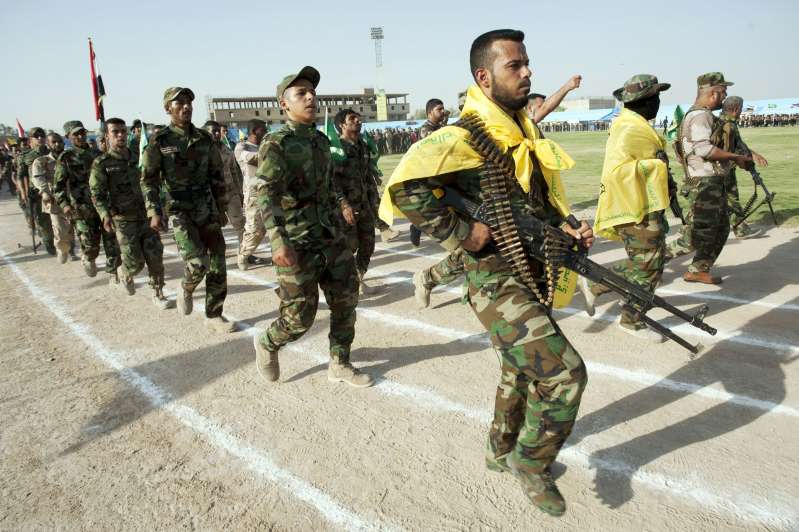By Tom O’Conner, Newsweek–
Six members of the Popular Mobilization Forces, an official Iraqi militia organization with ties to Iran, were killed in another U.S. drone strike in northern Baghdad on Friday, multiple officials told Newsweek. The strike comes a day after President Donald Trump approved an operation that killed an elite Iranian general.
Pentagon officials told Newsweek Friday evening the operation was targeting Imam Ali Brigades with a “high probability” the strike resulted in the death of its leader, Shubul al-Zaidi. The U.S. operation that targeted Zaidi was apart of the same degradation effort Trump approved Thursday morning, which killed Iranian Revolutionary Guard Quds Force commander Major General Qassem Soleimani.
Speaking Friday from his Florida resort in Mar-a-Lago, Trump said that strike that killed Soleimani was ordered “to stop a war” and prevent attacks on American personnel.
“Soleimani was plotting imminent and sinister attacks on American diplomats and sinister attacks on American diplomats and military personnel, but we caught him in the act and terminated him,” Trump said, speaking to reporters. “We took action last night to stop a war, we did not take action to start a war.”
Iranian officials have sworn revenge, and Trump’s latest strike sent already-soaring tensions into a potential tailspin.
The Popular Mobilization Forces confirmed to Newsweek that an air raid targeted one of their convoys near Taji Stadium in Baghdad, but have so far denied the deaths of Zaidi, along with Saraya al-Khorasani head Hamid al-Jazaery and another militia leader Raed al-Karawi.
The Imam Ali Brigades were one of the mostly Shiite Muslim militias to take arms, forming the Popular Mobilization Forces in response to the Islamic State (ISIS) militant group’s partial takeover of Iraq in 2013 and 2014. Newsweek spoke to one of its most notable commanders Ayyub Faleh Hassan al-Rubaie, also known as “the Archangel of Death” in June 2017, a month before ISIS was defeated at Iraq’s second city of Mosul.
Several Popular Mobilization Forces militias, many of which were supported by Iran, also fought U.S. troops after the 2003 invasion that toppled longtime leader Saddam Hussein. One such group, Kataib Hezbollah, was blamed by the U.S. for a rocket attack last week attack that killed a Pentagon contractor. The U.S. retaliated with airstrikes that killed up to 27 fighters in positions on both sides of the Iraq-Syria border.
The operation was not coordinated with the Iraqi government, and fueled anger among pro-Popular Mobilization Forces supporters, who stormed the gates of Washington’s embassy in Baghdad on New Year’s Eve. They set fires and defaced entry structures for two days. Iran offered support for the demonstrations, but a day after they subsided and additional troops arrived, Soleimani was killed, alongside two other Popular Mobilization Forces officials, deputy head Abu Mahdi al-Muhandis and protocol head Mohammed Redha al-Jabri.
This is a developing story and will be updated as more information becomes available.


Leave A Comment
You must be logged in to post a comment.